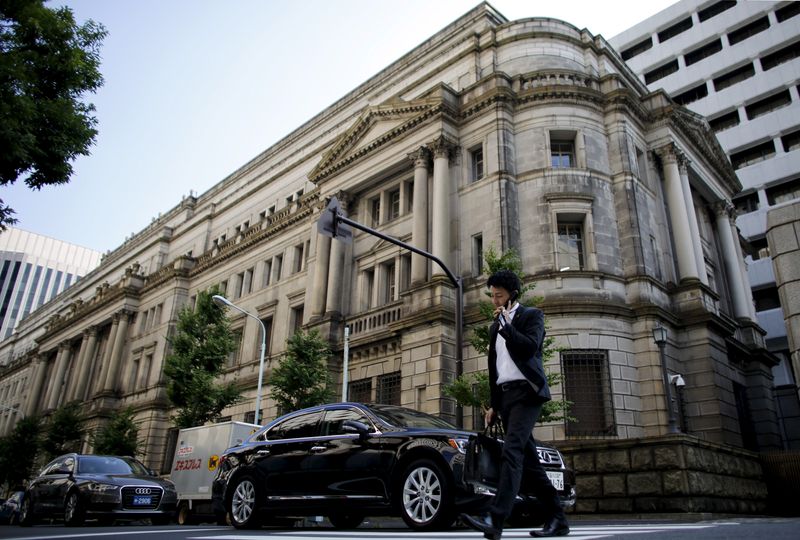By Leika Kihara
TOKYO (Reuters) -Bank of Japan policymakers actively debated in December the conditions for phasing out stimulus, and agreed to deepen discussions on the appropriate pace of future interest rate hikes, minutes of the meeting showed, a sign they were gearing up for a near-term exit from negative interest rates.
The minutes came after the BOJ signalled on Tuesday its growing conviction that conditions for phasing out its huge stimulus were falling into place, suggesting that it will soon pull short-term interest rates out of negative territory.
“The members agreed on the need to continue deepening discussions on issues such as the timing of an exit from the current monetary policy, and the appropriate pace of interest rate hikes thereafter,” the minutes showed on Friday.
In a sign they were already brainstorming ideas, some in the board said the BOJ could maintain its bond yield control as a loose framework even after pulling short-term rates out of negative territory, according to the December minutes.
“A few members said the BOJ will likely maintain massive monetary easing for some time, even after ending negative interest rates and yield curve control,” it showed.
Some also called for an analysis on the potential market impact of ending negative rates, as well as discussions on whether to maintain a framework for buying risky assets, the minutes showed.
There appeared to be no consensus, however, on the likely timing and sequence of an exit, which members said would depend on economic conditions at the time, the minutes showed.
Since taking the helm last year, BOJ Governor Kazuo Ueda has begun dismantling his predecessor’s complex stimulus programme consisted of a negative short-term rate, yield curve control (YCC), as well as massive bond and risky asset purchases.
Many analysts expect the BOJ to end negative rates sometime this year, most likely in April, after having watered down YCC last year.
The minutes highlighted a rift between those in the board cautious of ending negative rates soon, and others who felt the time was fast approaching.
Some members said the BOJ can afford to spend plenty of time scrutinising the outcome of this year’s spring wage negotiations as the risk of runaway inflation was small, the minutes showed.
Several members, however, said the BOJ must examine the feasibility of exiting negative rates and YCC with one saying the timing of policy normalisation was approaching.
“The BOJ shouldn’t miss the opportunity to revise policy by being overly cautious,” one member was quoted as saying.
(Reporting by Leika Kihara; Editing by Muralikumar Anantharaman and Michael Perry)


